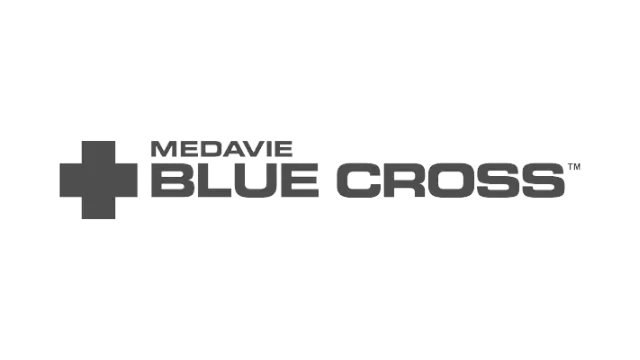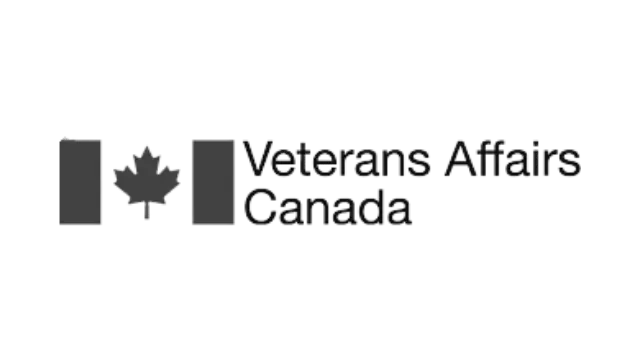Grigore Counselling & Associates
Reconnect. Repair. Rebuild.
Struggling with constant tension or miscommunication at home?
Family therapy helps you understand each other, strengthen bonds, and grow together.
你的家庭值得擁有最好的一切, خانوادهتان شایسته بهترینهاست, आपका परिवार सबसे अच्छा हकदार है
Family Therapy
Family therapy, or family counselling, is a form of psychotherapy that helps families improve communication, resolve conflicts, and strengthen relationships by addressing underlying dynamics and patterns. Research shows that family therapy can be highly effective, with studies indicating that about 75% of families who engage in it, report significant improvements in family functioning and individual well-being.
- Strengthen Family Bonds
- Resolve Conflicts Effectively
- Increase Support for Life’s Challenges
Bonding
Improve communication, rebuild trust, and create healthier relationships.
Peace
Learn tools to navigate disagreements and reduce tension in a supportive environment.
Support
Get professional guidance to manage stress, transitions, and mental health concerns together.
How Does Family Therapy Work?
Family therapy or family counselling is a collaborative process where a trained therapist helps family members improve communication, resolve conflicts, and build stronger relationships.
1. Assessment & Goal Setting: The therapist gathers information about family dynamics, identifies concerns, and sets goals for therapy.
2.Guided Discussions: Sessions provide a safe space to express thoughts and feelings, improving understanding and empathy among family members.
3. Skill-Building and Problem-Solving: Families learn practical tools to manage conflict, set healthy boundaries, and support one another.
4. Progress Review & Closure: Therapy concludes when goals are met, with a focus on maintaining positive changes long-term.
Family Counselling Can Help With...
Communication
Issues
Conflict
Resolution
Parenting
Challenges
Blended Family
Adjustments
Mental Health &
Emotional Support
Life Transitions
& Stress
Substance Use &
Behavioural Issues
Building Trust &
Strengthening Bonds
Cultural &
Intergenerational
Differences
Family Therapy Fast Facts
Our Expert Family Therapists

Florence Wong
MSSc, RSW
**$170-$200 Per Hour** | Child-Adult | Couples | Families
CBT | Family Therapy
Family Conflict | Marital / Pre-Marital | Self-Esteem ...
English | Cantonese | Mandarin

Sam Lam
MSSc, RCC
**$170-$200 Per Hour** | Child to Adult | Families
AEDP | Humanistic | Play Therapy | SFBT
Autism | Depression | Family Conflict | Parenting ...
English | Cantonese | Mandarin






FAQ
Most frequent questions and answers
How do I know if my family should start family counselling?
You might consider family counseling when conflicts, communication breakdowns, or emotional distress start affecting your family’s overall well-being. Here are some key signs that indicate your family could benefit from professional support:
1. Persistent Conflict & Tension
- Frequent arguments that never seem to get resolved
- Constant tension between family members
- Repeated cycles of blame or resentment
2. Communication Breakdown
- Family members feel unheard or misunderstood
- Conversations often turn into shouting matches or silent treatment
- Difficulty expressing emotions in a healthy way
3. Emotional Distance or Withdrawal
- Family members avoid spending time together
- Lack of trust or emotional connection
- Feeling like you’re living separate lives under the same roof
4. Major Life Changes & Stress
- Divorce, separation, or blending families
- Loss of a loved one
- Financial struggles, relocation, or job loss
5. Behavioral Issues in Children or Teens
- Acting out at home or school
- Sudden drop in academic performance
- Increased defiance, aggression, or withdrawal
6. Mental Health Concerns
- Anxiety, depression, or emotional distress affecting one or more family members
- Substance use or self-destructive behaviors
- Struggles with self-esteem or identity within the family
7. Parenting Struggles
- Inconsistent discipline leading to confusion or frustration
- Disagreements between parents on how to raise children
- Feeling overwhelmed or unsure about parenting decisions
If any of these signs resonate with your family, seeking counseling can provide a safe space to improve communication, rebuild trust, and create healthier relationships.
How do I choose the right family therapist for our needs?
Choosing the right family therapist is important to ensure a comfortable and effective counseling experience. Here are some key factors to consider:
1. Qualifications & Experience
Look for a licensed professional (e.g., Registered Clinical Counsellor, Psychologist, or Marriage & Family Therapist).
Find someone with experience in family therapy and specific issues your family is facing (e.g., parenting struggles, conflict resolution, blended families).
2. Approach & Techniques
Therapists use different approaches, such as Emotionally Focused Therapy (EFT), Cognitive Behavioral Therapy (CBT), or Family Systems Therapy.
Ask about their approach and how it aligns with your family’s needs.
3. Specialization
If a family member is struggling with a specific issue (e.g., a child with anxiety, a teen with behavioral concerns, or a parent with depression), look for a therapist who specializes in that area.
4. Compatibility & Comfort
Your family should feel comfortable, heard, and understood by the therapist.
Many therapists offer a consultation—use this time to see if their style feels like a good fit.
5. Availability & Accessibility
Check if they offer in-person, online, or hybrid sessions.
Consider their location, scheduling flexibility, and session costs (including insurance coverage).
6. Cultural & Personal Fit
If cultural background, religious beliefs, or personal values are important, find a therapist who understands and respects them.
7. Reviews & Recommendations
Ask for referrals from trusted friends, doctors, or school counselors. Read reviews or testimonials to gauge client experiences.
Are sessions virtual or in-person?
Most of our sessions are virtual aside from VIP EMDR Retreats (some of our Associates may elect to offer the occasional in-person session, so it’s important to check with them).
While offering virtual sessions nearly exclusively may seem unorthodox, during the COVID-19 pandemic lock-down, Robert discovered virtual sessions were superior in many ways to in-person sessions.
Some reasons for this are: allowing clients to meet in the comfort of their home or office, allowed clients to reach a new level of authenticity by not needing to get “dressed up for the world;” and not needing to account for travel time was greatly appreciated by most of our clients who have busy schedules. Furthermore, virtual sessions require the therapist to attune much more deeply to their client, and having a therapist who is even more deeply attuned to their client, can only benefit treatment.
However, with that said we will check-in to ensure sessions are working for your child.
What does family therapy look like?
1. First Session: Getting to Know Your Family
- The therapist will ask about your family’s history, relationships, and current concerns.
- They may meet with all family members together or speak to individuals separately.
- The goal is to understand your family’s dynamic and establish goals for therapy.
2. Open Discussions & Communication Exercises
- The therapist will encourage honest and respectful conversations.
- They might help family members express feelings in a way that fosters understanding rather than conflict.
- Expect guided discussions to resolve misunderstandings and strengthen relationships.
3. Conflict Resolution & Problem-Solving
- The therapist will help your family recognize patterns that lead to tension.
- You’ll learn new ways to handle disagreements, set boundaries, and compromise effectively.
- Exercises like role-playing or structured conversations may be used.
4. Strengthening Emotional Bonds
- The therapist may introduce activities that build trust and connection.
- Families might practice active listening, gratitude sharing, or teamwork exercises.
5. Individual & Group Work
- Sometimes, the therapist will meet with family members one-on-one to address personal struggles.
- They may then guide family members to support one another in healthier ways.
6. Practical Strategies & Homework
- The therapist will suggest homework assignments to apply what you’ve learned outside of sessions (e.g., communication exercises, journaling, or spending intentional time together).
- Families track progress and discuss challenges in future sessions.
7. Progress & Closure
- Therapy continues as long as needed, but the goal is for families to develop skills to manage challenges on their own.
- Once progress is made, sessions become less frequent before eventually concluding.
How will I know therapy works for my family?
You’ll know family therapy is working for you when you start to notice positive changes in your relationships and dynamics. Here are some signs that family therapy is having a positive impact:
1. Improved Communication
- Less conflict: You’re able to express your feelings without it escalating into arguments.
- Active listening: Family members seem more engaged and listen to each other’s perspectives.
- Clearer expressions of needs and feelings: It becomes easier to communicate needs and understand others’ emotions.
2. Strengthened Emotional Connections
- More empathy and understanding: Family members seem more compassionate toward each other’s struggles.
- Reduced emotional distance: You begin to feel more connected and supported by your family.
3. Increased Cooperation & Problem-Solving
- Collaborative approach to challenges: Instead of blame or frustration, your family works together to find solutions.
- Better conflict resolution: Family members start using the tools they’ve learned in therapy to resolve issues before they escalate.
4. Personal Growth & Accountability
- Increased self-awareness: Family members, especially children or teens, may begin to recognize their own behaviors and how they impact others.
- Changes in behavior: You notice that negative behaviors (e.g., outbursts, avoidance, substance use) are less frequent or more manageable.
- Growth in individual relationships: Parents and children may start having deeper, more meaningful interactions.
5. Positive Impact Outside of Therapy
- Improved family functioning at home or school: You see changes in the household atmosphere—more peace, cooperation, or a better overall environment.
- Stronger bonds during difficult times: When challenges arise outside of therapy, family members are better equipped to support each other.
6. Gradual Progress
- Therapy isn’t a quick fix, so progress may be gradual. Small improvements over time, such as fewer conflicts or more thoughtful communication, indicate things are moving in the right direction.
7. Feeling More Hopeful & Motivated
- You feel a sense of hope for the future, knowing that you can continue to build healthier dynamics.
- Family members are committed to making changes, even when it’s challenging.
If you’re not sure if therapy is working, it’s always a good idea to talk directly with your therapist. They can help you track progress, reassess goals, or adjust strategies if necessary.
Could family therapy make anything worse?
While family therapy can be incredibly beneficial, it’s possible for it to feel difficult or even seem to make things worse in the short term, especially if there are unresolved issues or emotions that need to be addressed. Here are some situations where family therapy might feel challenging or have temporary setbacks:
1. Emotional Intensity
- Opening old wounds: Therapy can bring up past traumas or unresolved conflicts that might initially intensify emotions. While this can be uncomfortable, it’s often part of the healing process.
- Increased conflict in the short term: As everyone starts expressing their true feelings, initial confrontations or disagreements may arise before understanding is achieved.
2. Resistance to Change
- Denial or avoidance: Some family members may resist acknowledging their role in the issues or may not be ready to change. This can create tension in the process.
- Unwillingness to participate: If not everyone in the family is committed to the process, therapy might feel ineffective or frustrating.
3. Miscommunication or Misunderstanding
- Misinterpretation of therapy techniques: Sometimes, family members might misinterpret the therapist’s suggestions or feel misunderstood.
- Feeling “attacked”: If communication isn’t managed carefully, one person may feel blamed or criticized, which can create more conflict.
4. Feeling Overwhelmed
- Too much to handle at once: Sometimes, addressing multiple issues in a family can feel overwhelming, especially if there are deep-rooted problems that have built up over years.
- Difficult emotions may surface: Family members may feel vulnerable or uncomfortable when sharing deep feelings, leading to emotional overload.
5. Unrealistic Expectations
- Expecting quick results: Change takes time, and expecting immediate results can lead to frustration. Therapy is a gradual process, and it can take several sessions (or even months) before you begin seeing noticeable improvements.
What to Do If It Feels Worse:
- Communicate openly: If it feels like therapy is making things worse, talk to your therapist about it. They can adjust the approach or offer guidance on how to navigate challenges.
- Pace yourself: Therapy doesn’t have to address everything at once. You can set manageable goals and work through things step by step.
- Manage expectations: Remind your family that therapy is a process and that setbacks or difficult moments are normal on the path to healing.
If you notice that the therapy feels more harmful than helpful, it may also be worth considering whether the therapist is the right fit for your family’s needs. A good therapist will help guide you through challenges and create a safe space for everyone.
Can family therapy be done if a family member is on medication or actively using drugs or abusing alcohol?
Yes, family therapy can still be very effective if a family member is on medication, using drugs, or abusing alcohol, but there are some important considerations to ensure that the process is helpful and safe for everyone involved.
1. Addressing Substance Use or Self-Sabotaging Behaviours in Therapy
- Individual therapy first: If someone is actively struggling with substance use, it might be beneficial for that person to engage in individual therapy or a rehabilitation program before or alongside family therapy. This ensures that they’re receiving the right treatment for their compulsive behaviour or substance use disorder.
- Integrated approach: Many family therapists specialize in working with families affected by alcoholism, substance abuse, or compulsive behaviours, using approaches like family systems therapy or intervention therapy. These therapists understand the impact of substance use on family dynamics and can guide the process accordingly.
2. Medication Considerations
- Stabilization first: If a family member is on medication for mental health issues (e.g., depression, anxiety, bipolar disorder), it’s important that they are stabilized on their medication before therapy. If they’re struggling to manage their medication or have recently started a new treatment plan, it might be helpful to consult with their prescribing physician before starting family therapy.
- Medication and therapy synergy: Medication can complement therapy, and the therapist can work with the family to understand how mental health conditions and medication affect relationships. However, it’s essential for everyone involved to know that therapy is not a substitute for medical treatment.
3. Potential Challenges
- Unpredictable behaviors: If someone is actively using substances or struggling with their medication, their behavior might be unpredictable, which can make the therapy process more challenging. In such cases, the therapist may adjust the session’s pace or provide strategies for coping with those behaviors.
- Avoiding enabling: Family members must be mindful not to enable destructive behaviors (e.g., covering up or making excuses for substance use). A skilled therapist will help guide families on how to address these issues without enabling or escalating the situation.
- Emotional volatility: Drug or alcohol abuse can create emotional highs and lows, which might make it difficult to stay focused during therapy. In this case, the therapist will help create a more structured environment where difficult emotions can be safely explored.
4. Safety & Boundaries
- Setting boundaries: The therapist will help establish healthy boundaries for family members, especially when compulsive behaviours or substance abuse is involved. This might include deciding when it’s appropriate to attend therapy, how to handle disruptions or emotional flare-ups, and how to maintain a safe space for everyone involved.
- No judgment: A good family therapist will work to create a non-judgmental environment, ensuring that every family member feels heard and supported, no matter what issues they’re facing.
5. Support for the Family
- Supporting the family unit: Family therapy can provide tools to help all family members cope with the emotional toll of living with someone who is using substances or struggling with mental health issues. The therapist can help everyone learn coping strategies, communication skills, and ways to provide healthy support without becoming overwhelmed.
When Family Therapy Might Not Be Suitable
- If someone is actively intoxicated or under the influence during therapy, it’s usually best to postpone the session.
- If a family member is unwilling to participate in therapy or treatment (e.g., denying the substance abuse problem), it can be challenging to engage them in a meaningful way.
In these cases, individual therapy, treatment programs, or interventions might be necessary to help the individual before family therapy can be truly effective.
What if every family member isn't willing to start family counselling? Can you convince them for me?
It’s really common for some family members to resist or feel reluctant about family counseling, especially if they’re unsure about what it involves or if they’re hesitant to face difficult emotions. While I can’t directly convince them, I can offer some strategies you can use to help motivate them and approach the conversation in a way that feels less intimidating:
1. Normalize the Experience of Therapy
- Frame therapy as a tool, not a cure: Explain that therapy is simply a way to help improve communication, resolve conflicts, and strengthen relationships—similar to how people see a doctor for physical health.
- Highlight positive outcomes: Share examples of how therapy has helped others, either in your own life or through testimonials, research, or success stories. Emphasize that therapy is a way to make life better, not just for individuals but for the whole family.
2. Focus on the Benefits, Not the Problems
- Address concerns with empathy: If someone is hesitant because they fear therapy will “blame” them or force them to confront something they’re not ready for, acknowledge those fears. Reassure them that therapy is a safe and supportive environment, not a place for judgment.
- Emphasize personal growth: Some people resist therapy because they think it’s only for fixing problems. Reframe it as a way to improve relationships, reduce stress, and build healthier dynamics for everyone involved.
3. Frame It as a Family Decision, Not One Person’s Need
- Make it about the family as a whole: Instead of saying, “I need this,” frame the conversation around “We all could benefit from this.” This reduces any feelings of blame or pressure on one person.
- Explain the shared goals: Help everyone see that therapy is about working together for mutual benefit—better communication, stronger bonds, and more understanding across the family.
4. Start with a Small Commitment
- Try a single session: Sometimes, just asking them to come for one session to get a feel for the process can be less intimidating. Reassure them that there’s no long-term commitment required, and they can decide after that session if it’s right for them.
- Offer a trial period: Suggest a short-term commitment to see if the process feels helpful. That way, they can opt out if it doesn’t feel right for them.
5. Approach with Compassion and Patience
- Avoid pressure or confrontation: If someone is resistant, giving them space to process the idea can be more effective than pushing them into it.
- Understand their hesitation: Some people may feel scared, embarrassed, or vulnerable about opening up. Be patient and allow them to express their concerns without judgment.
6. Provide Information
- Share facts about therapy: Sometimes people resist therapy because they don’t understand how it works. Providing resources (articles, videos, or even a therapist’s website) can demystify the process and help them feel more informed.
7. Consider Individual Therapy First
- If one or more family members are especially resistant, suggest they try individual therapy before committing to family counseling. They may feel more comfortable with a one-on-one setting, and the therapist could help them address any personal issues that might be affecting their willingness to join the family sessions later on.
8. Lead by Example
- Show your commitment: If you take the first step and show your willingness to work through the process, others may be more open to joining in. Your attitude can be contagious!
Will my insurance cover any costs?
Most likely. It’s important to check with your insurance carrier to determine if they cover “Registered Clinical Counselling,” “Clinical Counselling,” “Counselling,” “Mental Health Counselling,” “Psychotherapy,” “Psychological Services.”
We have conveniently included most insurance carriers where our services are accepted (although others who have not been included may still provide reimbursement).
If you determine your carrier will accept our services in full or in part, you are required to pay in full for our services, and then seek reimbursement from your insurance carrier.
It’s important to learn which designation your insurance carrier covers prior to your consultation and then discuss this matter prior to commencing services.
What is the difference between a Psychiatrist, Psychologist, Psychotherapist, Clinical Counsellor, Social Worker?
It’s confusing isn’t it? Let’s bring some clarity here.
Psychiatrists are medical doctors (MD’s) with a focus on mental health. They can formally diagnose and prescribe medications.
Psychologists are “doctors of psychology” but are not medical doctors. They have a PhD. They are allowed to diagnose mental health conditions, conduct psychological assessments, but cannot prescribe medications.
Psychotherapists and Clinical Counsellors are interchangeable designations where each province will have certain protected rights to use a particular designation. For example, in British Columbia, we are called either Registered Clinical Counsellors or Certified Clinical Counsellors; in Ontario the term used is Registered Psychotherapist. Counsellors/Psychotherapists (whichever term is used) generally have a MA level degree, are able to conduct psychological /counselling services but are not able to formally diagnose, assess, or prescribe medication.
Social Workers are able to conduct counselling sessions and are governed by the College of Social Workers. They may also belong to other professional associations and conduct therapy/counselling/psychotherapy within those guidelines.
Social workers most often have a MA level degree, and like Clinical Counsellors/Psychotherapists, cannot formally diagnose, assess, or prescribe medication.
Hope that helps!
Anything you want to ask us?
While we do our best to adhere to strict confidentiality, we cannot guarantee complete privacy when messaging us over the internet. Please only share what you feel comfortable sharing in this format.
